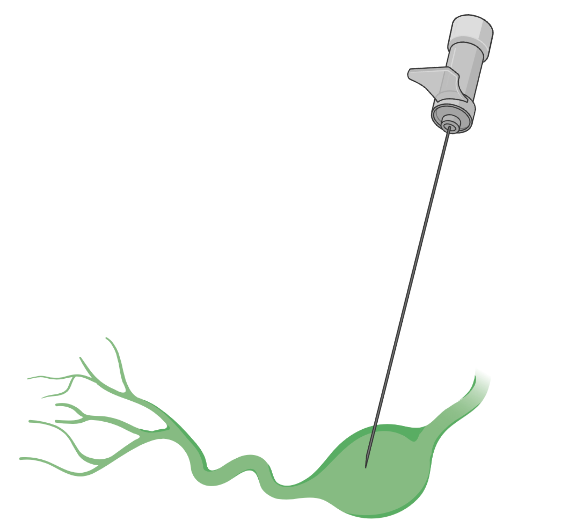LymphaLock: A Retractable Securement Device for Lymphangiography
Team: LymphaLock
Program:
Biomedical Engineering
Project Description:
Some patients present with leakages of lymphatic fluid as a consequence of iatrogenic damage to the lymph nodes and vessels after head, neck, abdominal, or groin surgery. Lymphangiography is an imaging procedure used to pinpoint the source of lymphatic leaks, which is a critical step before further treatments such as percutaneous thoracic duct embolization or surgical ligation can occur. During the procedure, the interventional radiologist gradually injects contrast agent into an inguinal lymph node, allowing the agent to diffuse through the lymphatic vessels over the course of 1-4 hours so that the source of the leak can be visualized under fluoroscopy imaging. However, the 25-gauge needle used to inject contrast agent is prone to dislodgement, exacerbating the difficulty and prolonging the length of the procedure. Despite there being devices on the market for intravenous needle stabilization, there are limited solutions designed specifically for lymphatic applications.
We have developed a prototype for a novel retractable securement device that anchors the contrast agent delivery needle in the lymph node. The mechanism of retraction is simple to deploy and does not interfere with the clinical workflow. To test the efficacy of securement, we built a custom force testing rig with a multi-layer lymphatic phantom model made from silicone. Our data show that our device reduces the incidence of needle dislodgement when subjected to external force.
By implementing our device in clinical practice, we hope to conserve clinical resources, increase the efficiency of lymphangiography procedures, and improve outcomes for patients in need.
Team Members
-
[foreach 357]
[if 397 not_equal=””][/if 397][395]
[/foreach 357]
Project Mentors, Sponsors, and Partners
Course Faculty
-
[foreach 429]
[if 433 not_equal=””][/if 433][431]
[/foreach 429]
Project Links
Additional Project Information
Project Photo

Project Photo Caption:
The image is an illustration of a 25-gauge needle inserted vertically into a green lymph node. The lymph node has several lymphatic vessels leading into it.


